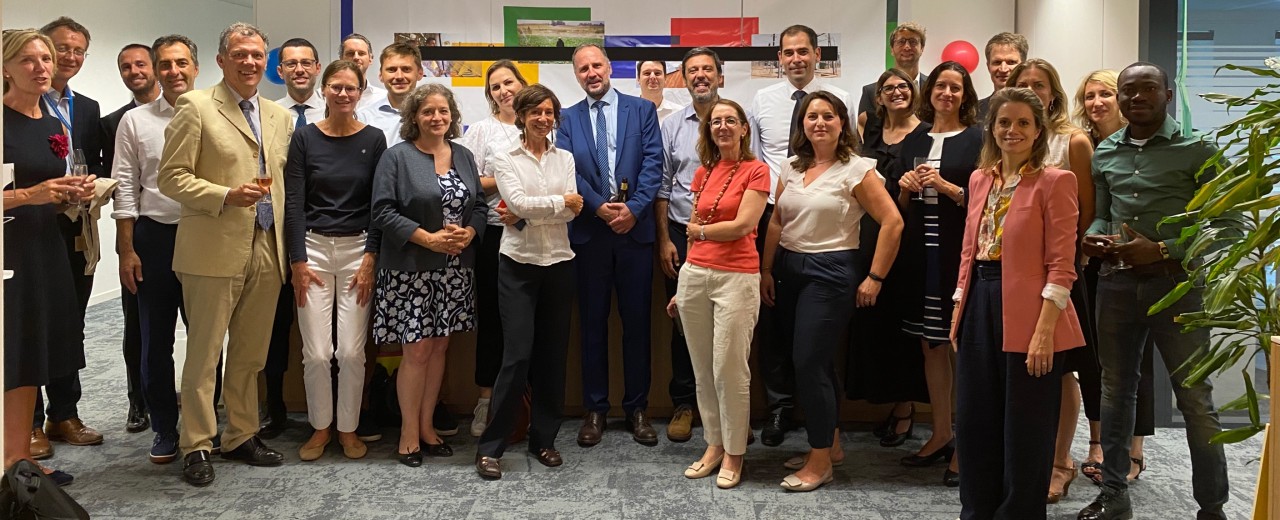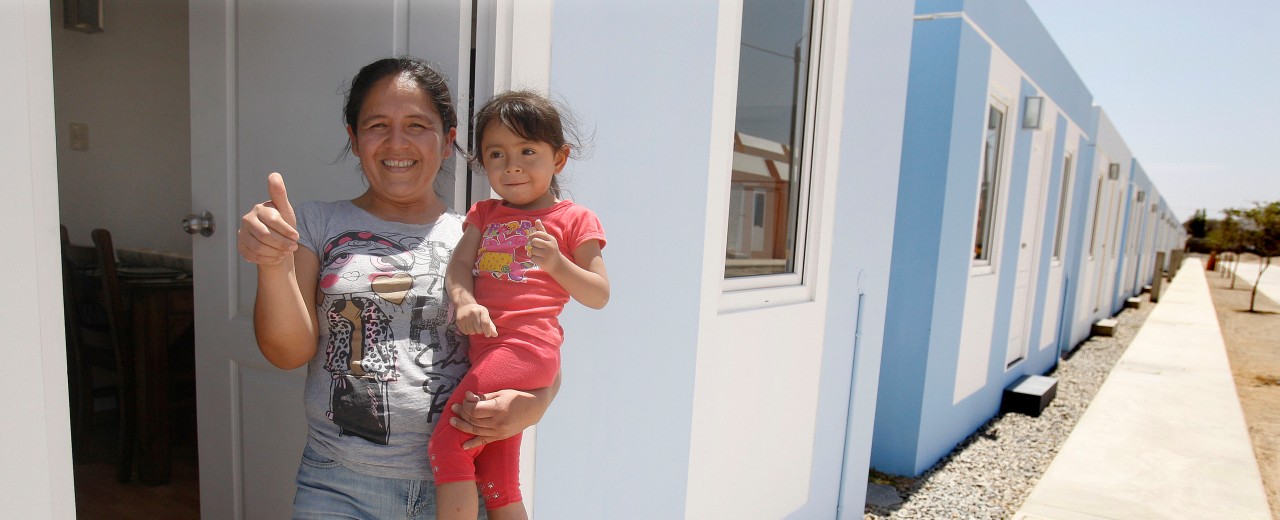News from 2024-05-07 / KfW Development Bank
Working with KfW for a strong Europe in the world and at home
Europe's contribution, our experience and also our values are widely appreciated and are needed more urgently than ever. On behalf of the German Federal Government, KfW works closely with the institutions of the EU and its member states. In doing so, it contributes its decades of experience as a promotional bank and its long-standing relationships within an established local network. This also creates synergies for the EU, for example in development cooperation, where KfW was able to significantly expand its contribution last year: Projects worth a total of almost EUR 310 million were agreed on behalf of and using funds from the EU - an increase of 60% compared to the previous year in favour of the Sustainable Development Goals (SDGs), which received a boost primarily in Africa, but also in Asia, Latin America and the EU neighbourhood countries in Eastern Europe.

One focus is on future-oriented projects for the generation and supply of energy from renewable sources, such as solar, hydro or wind power in the Balkans or Africa. Coastal and forest protection, municipal infrastructure and the strengthening of small and medium-sized enterprises are also on the agenda, as are education and digitalisation, for example of schools in Mozambique, in order to open up prospects for an attractive future for young people.
In 2023 KfW has also contributed to the EU's Global Gateway investment initiative by several lighthouse projects. Within a Team Europe approach, the EU pursues the goal of supporting infrastructure projects in partner countries worldwide in the areas of digitalisation, climate and energy, transport, health, education and research. The aim is to strengthen strategic sectors that are important for a globally sustainable future also in Europe. European know-how and networking in a geopolitically more and more polarised world are intended to promote European values and improve stability in peripheral regions.
One of the 2023 cooperation highlights is Morocco, where a 100 MW hydrogen reference plant for the production of green hydrogen is being built in conjunction with a hybrid 580 MW solar and wind farm. 10,000 tonnes of H2 are to be produced annually and also exported to the EU. This will not only benefit energy supply and climate protection in Morocco: the development of a Moroccan hydrogen economy and the country’s establishment as an important exporter of green H2 in the EU’s southern neighbourhood are also an investment in Europe’s economy and security of supply.
In Serbia, KfW is supporting the expansion of the transmission grid and the Trans-Balkan Energy Corridor - another strategic project in a geopolitically exposed neighbouring region, whose connection to the European grid should not only contribute to our own energy security, but also to consolidation and better living conditions east of the EU.
Through its partner country Jordan, KfW is involved in a region that is particularly affected by the current refugee movements. Here, the As Salt sewage treatment plant is being expanded and rehabilitated. The biogas produced will be used for climate-friendly energy supply, and additional quantities of treated wastewater will be used in agriculture. Help for stabilisation in a region marked by war and crises, which also serves security in Europe.
But KfW’s participation in the EU’s Global Gateway is not limited to Europe's doorstep. In Indonesia, an important G20 partner country, the inadequate public transport systems are a major handicap for people and the economy, the environment and the climate. In the metropolitan region of Surabaya in East Java, Indonesia's second largest conurbation, an integrated and climate-friendly public transport system with modern trains is now being built with the help of KfW - a European contribution to a better living standard that people can experience personally and throughout the day.

To support the EU’s development cooperation even more efficiently KfW has also joined forces with its partner institutions AECID (Spain), AFD (France), BGK (Poland) and CDP (Italy) within the JEFIC network (Joint European Financiers for International Cooperation). Further synergies can thus be leveraged and sources of funding tapped in order to implement the initiatives of Team Europe and Global Gateway. The first authentic JEFIC project was launched in 2023 to promote green and social housing in Peru, and together the JEFIC partners have contributed to almost 200 Team Europe initiatives worldwide. A strong performance. And a good example of what can be achieved together.

Share page
To share the content of this page with your network, click on one of the icons below.
Note on data protection: When you share content, your personal data is transferred to the selected network.
Data protection
Alternatively, you can also copy the short link: https://www.kfw-entwicklungsbank.de/s/enzBWrMC.DEdA
Copy link Link copied